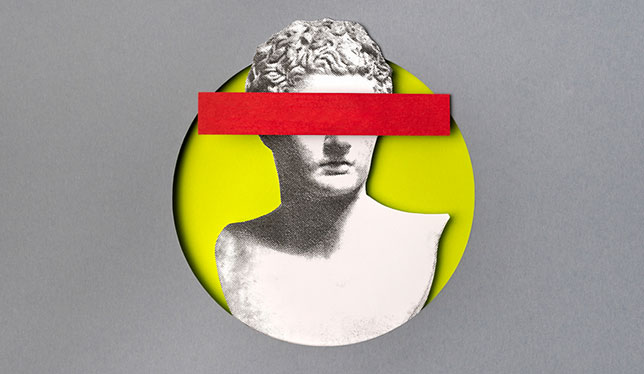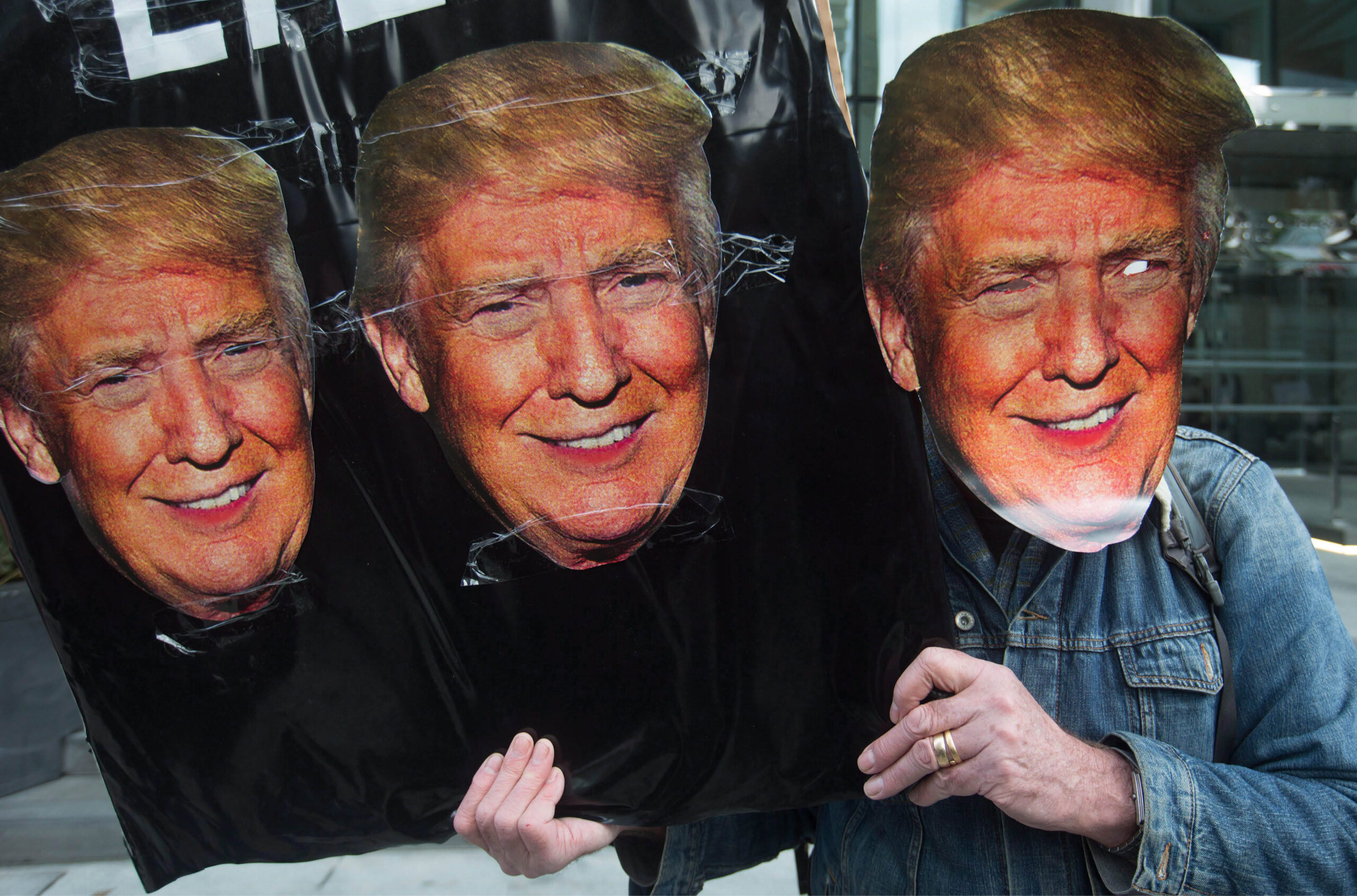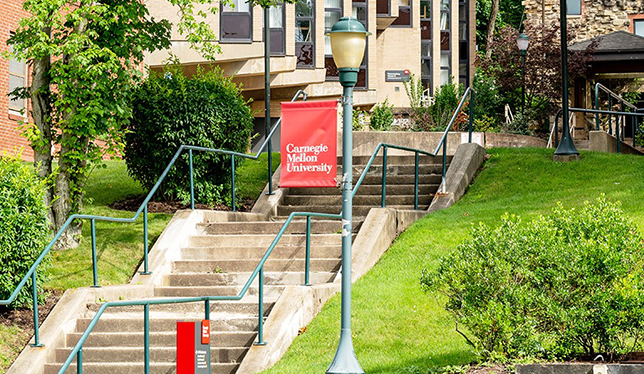The high price of donations
Even when it doesn’t improperly interfere in academic searches and tenure files, some kinds of donor funding routinely threaten academic freedom in a range of ways.

In his 1871 volume, The Conduct of Life, American philosopher Ralph Waldo Emerson pithily observed that “money often costs too much, and power and pleasure are not cheap.”
While Mr. Emerson intended his remarks more broadly, his words apply to universities and the sometimes deleterious effects of donations on academic freedom. These effects were vividly apparent in 2020 and 2021 in the cases of Nikole Hannah-Jones and Valentina Azarova.
Nikole Hannah-Jones is the Pulitzer and MacArthur-winning creator of the New York Times’s The 1619 Project. In spring of this year, she was named as the new University of North Carolina (UNC) Knight Chair in Race and Investigative Journalism, but it soon emerged that, unlike previous Knight Chairs, Ms. Hannah-Jones would not be tenured. Ultimately, Ms. Hannah-Jones opted to join Howard University rather than UNC when it emerged that outside pressure interfered with her appointment. UNC’s tenure committee had recommended tenure for Ms. Hannah-Jones, but the university’s board of trustees, under pressure from conservative donors – in particular, UNC School of Journalism and Media namesake and major donor Walter Hussman – did not implement the recommendation.
The Azarova case
Here in Canada, similar issues arose when the University of Toronto law school’s appointment of Valentina Azarova as director of its international human rights program came to an abrupt halt. This happened just as a major donor shared concerns about the appointment with a U of T assistant vice-president who handles donor relations. The university claims that the law school canceled the hire because of immigration and timeline challenges, but considerable evidence suggested that the underlying reason was donor pushback due to Ms. Azarova’s published criticisms of Israel. An independent review endorsed the university’s position, but critics pointed out that the reviewer declined to judge the credibility of university officials’ claims or their consistency with other evidence. In April of this year, the Canadian Association of University Teachers issued a rare censure of U of T for failing to uphold academic freedom in the case.
It’s clear that the UNC board caved to donors in the Ms. Hannah-Jones case. The immigration issues make the Azarova case a little murkier. However, the former dean who abruptly nixed Ms. Azarova’s appointment over a Labour Day long weekend did so just after learning about the donor’s concerns. Further, a U of T administrator gave the concerned donor confidential information about the search process as this was all going down. It is crucial for academic freedom that universities avoid both donor influence on hires and the appearance of donor influence on hires. At a minimum, U of T failed to do the latter.
While breaches of academic freedom, collegial governance and institutional autonomy in cases like these are deeply troubling, I am even more worried by the ways in which donor funds can threaten academic freedom in the normal course of things – that is, when there is no appearance of a scandalous breach.
The Koch-funded Goldwater Institute’s campaign
The bankrolling of charitable foundations by petroleum billionaires Charles and (the late) David Koch provides the clearest example of how philanthropy can threaten academic freedom. This plays out in funding for advocacy, journalism and scholarship that is strategically calculated to (as the group UnKoch My Campus puts it) “place private interests over the common good.”
Free speech is an extremely broad notion, extending to unscholarly and even bad-faith speech, while academic freedom exists to support research and teaching in the pursuit of truth and understanding in the service of society. In the domain of advocacy, the Koch foundations fund a range of different initiatives calculated to conflate academic freedom and free speech, and indeed to heavily prioritize free speech over academic freedom within the context of universities.
Perhaps most concerning among these is the Koch-funded Goldwater Institute’s campaign to introduce campus free speech legislation across the U.S. The model bill developed by the Goldwater Institute purports to strengthen free speech on campus, but its approach undercuts academic freedom and institutional autonomy in a range of ways, including dictating university policy and forcing universities to remain neutral on “public policy controversies.”
By way of illustration of a public policy controversy, the model bill’s authors offer fossil fuel divestment. They write that university divestment violates institutional neutrality, as does pressure to divest from university sustainability offices. And yes, it is pretty on-the-nose for a putative free speech bill funded by oil billionaires to explicitly rule out fossil fuel divestment. Let’s be clear: silencing criticism about fossil fuel investments is a feature, not a bug. Further, the model bill is highly punitive, laying out disciplinary sanctions for students who protest speakers and legal payouts for colleges that don’t toe the line. All of this is calculated to have a chilling effect on dissent.
The American Association of University Professors (AAUP) reported in early 2018 that 16 states had either introduced or passed campus free speech legislation or had introduced campus free speech measures without legislation. Of these, half were based on the Goldwater model bill. The AAUP decries campus free speech laws as a “false friend” of academic freedom and as a political agenda “masquerading behind ‘free speech.’”
Another organization that receives substantial Koch funding is the Foundation for Individual Rights in Education (FIRE). FIRE is sometimes hailed as a champion of academic freedom, and often provides supports to scholars whose academic freedom is violated, but that’s not their stated purpose. The “Mission” page on FIRE’s website mentions freedom of speech/expression eight times and discusses it, along with religious freedom, due process and freedom of conscience, in some detail. But the webpage does not once mention academic freedom. Further, FIRE explicitly frames its purpose in terms of students’ and professors’ individual rights, whereas the AAUP – arguably, the most important and longest-serving English-language champion of academic freedom – focuses on academic freedom in support of the common good. Perhaps unsurprisingly, FIRE has supported several of the state-level campus free speech bills in a range of ways from endorsement to drafting assistance.
The Speech Wars
When Koch money isn’t underwriting the “false friendship” between free speech and academic freedom through donations to advocacy groups like the Goldwater Institute or FIRE, it is whipping up free speech panic in the media. In particular, the Koch Foundation was one of three major funders for the Atlantic’s series The Speech Wars. The project ran from March 2018 to October 2019. Over that period, it published an astonishing 118 articles with the support of The Speech Wars funding. One hundred and eighteen! Did you even know that the Atlantic published 118 articles on any topic during that eighteen-month period, much less 118 articles on free speech? The Speech Wars made the Atlantic – a leftish bastion of publishing respectability – into the main PR firm for the alleged free speech crisis.
Only 20 (or about 17 per cent) of these articles were primarily about free speech on campus, but the others often touched on campus issues. Frankly, whatever the focus of the other articles, 20 articles over 18 months on campus free speech topics in a prestigious large-circulation magazine is a very large megaphone.
Those 20 campus free speech articles offered a broad range of perspectives, many of which defended campuses against the charge of being in the grip of a free speech crisis. It was clear throughout the project that the Koch funding did not oblige authors to take any particular perspective or draw Koch-friendly conclusions. So what’s the harm?
The harm of The Speech Wars was in convincing the public that there is a speech war: a free speech crisis sufficiently grave as to warrant 118 articles in a single publication over the course of a year and a half. Why would a general interest magazine spend so much time on the free speech crisis if no such crisis exists? One pretty clear answer is that they were generously paid to do so. The effect however was increased public credulity in the idea of a free speech crisis, that credulity in turn reducing the public’s trust in universities.
In the same way, Koch (and similar) funding for research grants, workshops and conferences produces credulity, interest and activity in related scholarly areas by university researchers and administrators. Let’s face it. Funding is scarce for many universities and university researchers. Donor support for research is increasingly necessary to survive in the research landscape. Donors have the right to fund topics they are interested in, and university scholars have the right to pursue external funding opportunities to advance their research. As a dean, I am incredibly grateful for the donor support my faculty and its members receive. However, donor support can tug entire disciplines, departments and institutions in scholarly directions that they would not otherwise have pursued. This gives industry and wealthy philanthropists an outsized influence on the kind of scholarship that happens.
External funding for universities and university researchers also gives the donor the imprimatur of scholarly respectability. Since I started writing publicly about academic freedom, I have several times been invited to write or present something for Koch-funded projects. Typically, with these sorts of groups, the Koch funding is buried pretty deep. (The Koch-funded FIRE, for instance, doesn’t list its funders on its website or publications. It received about $12 million in donations in 2020.) As a matter of principle, I won’t knowingly work with Koch-funded organizations, so I’ve gotten into the habit of researching the funding sources of any group that contacts me.
I do this even though every such invitation I have ever received has been very clear that I could argue for any position I like – no strings attached. Alas, that’s not where the strings are. For many years, a favourite strategy of young Earth creationist organizations was to foster the appearance of an academic controversy over evolutionary theory and the age of the Earth by sponsoring public debates with scientists, many of them held at universities. These donor-funded events didn’t prevent scientist participants from saying what they pleased. The aim was simply to have the optics of a genuine debate: two equal parties on the same stage. Further, sponsoring a wide range of dissenting views makes Koch foundations seem innocuous even while they pay big bucks to fuel free speech panic and thereby undercut academic freedom and university autonomy.
In sum, then, even when donors don’t improperly interfere in academic searches and tenure files, some kinds of donor funding routinely threaten academic freedom in a range of ways. Things are a bit better in Canada, thanks to public funding, strong faculty unions, good university policies and frankly less attention from the big U.S. funders. But what happens in the U.S. always has ripple effects here. Consider, for instance, the campus free speech interventions by the Ontario, Alberta and Québec governments.
I’ll devote my next column to some proposed solutions to the challenge that I have described here. In the meantime, what is the real cost of donations when it comes to academic freedom? In the marketplace of ideas, if you have to ask, you can’t afford it.
Featured Jobs
- Veterinary Medicine - Faculty Position (Large Animal Internal Medicine) University of Saskatchewan
- Psychology - Assistant Professor (Speech-Language Pathology)University of Victoria
- Canada Excellence Research Chair in Computational Social Science, AI, and Democracy (Associate or Full Professor)McGill University
- Business – Lecturer or Assistant Professor, 2-year term (Strategic Management) McMaster University















Post a comment
University Affairs moderates all comments according to the following guidelines. If approved, comments generally appear within one business day. We may republish particularly insightful remarks in our print edition or elsewhere.
2 Comments
Dear Dean Dea:
Your discussion of the Azarova case is not entirely accurate a complete and is thus unfair.
When is left with the impression that an offer of employment was made to Ms. Azarova and that, as has been stated elsewhere, the offer was rescinded. That is not correct. The incontrovertible fact according to an independent report prepared by a former justice of the Supreme Court of Canada is that no such offer was rescinded because none had been made. A search committee made a recommendation to the Dean of the Law Faculty that an offer be made. The Dean rejected the recommendation.
The central issue that former Justice Cromwell had to deal with was whether the decision of the University not to hire was due to improper external influence having been exerted on the Dean of the Law Faculty. Mr. Cromwell held that he could not reach the conclusion that it was. He found that there were sound reasons why the candidate could not be hired and that those reasons explained why she was not hired.
Before the supposed influence was brought to bear, the Dean had already expressed reservations as to whether the candidate recommended could be hired. He was concerned about the fact that she was a non-resident who, according to advice he had received from immigration and employment lawyers, was unable to get the required immigration permit in time to take up the position. The only way of hiring her was by means of an “independent contractor” arrangement, which the lawyers on both sides of the Atlantic considered was illegal or doubtfully legal. The candidate, moreover, wanted be free to spend 20% of her time in Europe, which was inconsistent with the full-time requirement of the position. In addition, any candidate was required to be licensed to practice law either in Canada or in a foreign jurisdiction and this candidate appeared not to have been so licensed. There was also another prospective candidate who was not a non-resident. When the fact of the communication of the donor’s concern about the candidate’s fitness for the position because of her strong and controversial anti-Israel bias was brought to the Dean’s attention, he stated that fact was irrelevant to the decision whether to hire.
The Canadian Association of University Teachers (“CAUT”) then held that Mr. Cromwell’s conclusion was “implausible” and found that the candidate was not hired due to external influence having been exerted on the Dean. It employed that conclusion to support a censure of the University of Toronto and to exhort all teachers to boycott the University by refusing to accept appointments to and speaking engagements at the University.
But underlying its censure was CAUT’s concern with a subject with which Mr. Cromwell did not have to deal, viz., whether, if the candidate could have been hired, she ought to have been hired. CAUT concluded that she ought to have been hired and still ought to be.
Since Mr. Cromwell concluded there were reasons why the candidate could not have been hired, there was no need for him to determine whether she ought to have been even if such a determination had been part of his remit, which it was not. Mr. Cromwell expressly stated that he was not required to determine the candidate’s fitness for the position and did not do so.
CAUT’s extraordinary action raises the question of what the purpose is of having an independent investigation conducted by a highly respected former judge of the Supreme Court of Canada of unquestioned competence and integrity if it is not to deal definitively with the controversy.
CAUT’s conclusion was based not on a careful and judicious view of all the evidence, as Mr. Cromwell’s was, but rather on a loose application of the logical fallacy of “post hoc ergo propter hoc.” It is virtually contemptuous of the investigation and the findings of the investigator. And it is tantamount to questioning the credibility of the Dean, whose integrity and reputation for probity are also beyond doubt, and tarnishing the reputation of the President of the University that is probably Canada’s Premier institution of higher learning.
When Ms. Azarova was not hired, there was a great hue and cry from CAUT and like-minded persons for an independent investigation of the question whether donor influence was responsible for her not being hired. The University then engaged a prominent and highly respected jurist to conduct an investigation of the evidence relating to this question and to prepare a report. When Mr Cromwell reviewed the evidence and concluded in his report that donor influence was not responsible, CAUT et al. cried foul because the conclusion reached by Mr. Cromwell was the opposite of what they expected it to be. They simply did not like his finding. That is what impaled them to invoke the “implausible“ notion.
Those who make an allegation for which there is insufficient evidence maintain it on the basis that it is “plausible.” If a conclusion is reached on the basis of a careful review of the evidence by an independent fact-finder that certain people do not like, they hold it to be “implausible.“ This is a contemptuous rejection of due process.
Dea’s comments are sloppy and disingenuous – odd for a philosopher, no?
A clear example is her denigration of FIRE’s work. The organization has supporters across the political aisle, and has been involved in coming to the defense of scores of academics over the last few years – particularly vulnerable tenure-track ones. Just look at the list of cases, the actual litigation, FIRE has taken up (most or all of which are publicly discoverable, let alone promoted by the organization) and one will find them falling squarely within academic freedom concerns. Readers also free to query in many of those cases the AAUP simply failed to come to these academics’ defence. Hint: cowardice would be a necessary, but insufficient, explanation here.
If Dea were particularly concerned about academic freedom, she would also note two things. First, the new McCarthyism in requiring neophytes to submit Diversity, Equity, and Inclusion statements as part of their job applications. Second, the problem of political biases in SSHRC committees themselves. As a philosopher, she might have seen the recent discussion (October 2021) of this real problem being exacerbated by the SSHRC’s new “diversity” requirements on Leiter’s famous blog. Readers are advised to look for UofT philosopher Tom Hurka’s comments therein.
More generally, the piece misses common sense – something difficult to chastise a philosopher over, but something nonetheless expected of a competent dean. The reason why so many American states are passing such legislation, and why still more will do so, isn’t to sneak in defenses of fossil fuels. It also isn’t merely to appease state voters, since such bills also have “liberal” (in contrast to “progressive”, to use the Yanks’ lingo) support. Rather, it’s due to the totalitarian tendencies of the political left within universities, which is ruining our institutions and societies. There is unquestionably a freedom of speech problem on American campuses; it’s just that Dea is on the side of those who think some – inchoate, immeasurable, normative – “harm” invariably outweighs such speech and so falls outside the bounds of the legally and institutionally permissible. What happened to Lindsay Shepard at Laurier and to Trent Colbert at Yale Law are not anomalies, no matter how much Dea would want to lie about them being so.